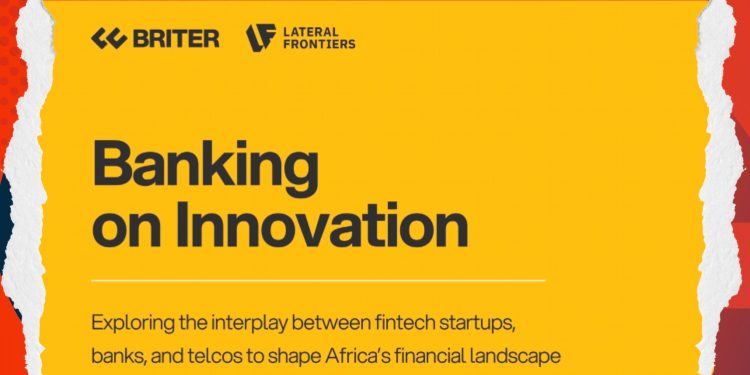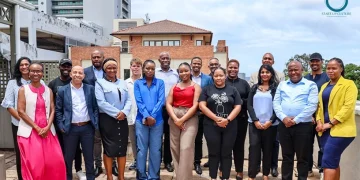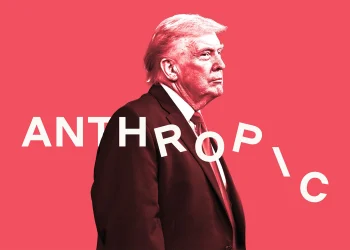Africa’s financial future is being reshaped not by competition but by collaboration. A new report, “Banking on Innovation”, by Briter Bridges and Lateral Frontiers, highlights how partnerships among banks, fintech startups, and telecommunications companies are redefining financial inclusion, access, and innovation across the continent’s key markets: Egypt, Kenya, and Nigeria.
From Competition to Collaboration
For over a decade, Africa’s fintech story has been synonymous with disruption. But according to the report, the real transformation now lies in cooperation. Banks bring reach and regulatory experience, fintechs bring agility and innovation, while telcos bring scale and distribution. Together, they are building a more inclusive and resilient financial ecosystem.
In Egypt, partnerships like Banque Misr and valU have expanded Buy Now, Pay Later (BNPL) access to millions, while Kenya’s Citi, Visa, and Cellulant collaboration is addressing a $25 billion SME funding gap. In Nigeria, integrations between Paystack and leading banks such as Access Bank and Zenith Bank are modernising merchant payments and powering the growth of SMEs.
Different Markets, Same Goal
Each country presents a unique model of financial innovation:
-
Egypt has evolved into a bank-led ecosystem, driven by proactive regulators like the Central Bank of Egypt (CBE) and initiatives such as Fintech Egypt and Meeza, the national payment network. Fintechs like Fawry and MNT-Halan are deepening digital inclusion in a historically cash-heavy economy.
-
Kenya remains telco-led, with M-Pesa as the backbone of financial services. Yet, new layers are emerging through fintech-bank collaborations like Citi Optimised Pay, which leverage digital infrastructure to improve liquidity for SMEs.
-
Nigeria stands out with a hybrid model, balancing banks, fintechs, and telcos under regulatory frameworks like Open Banking (2023) and Payment Service Bank (PSB) licensing. Companies like Flutterwave, Moniepoint, and Opay are extending financial services to previously unbanked populations through deep bank integrations.
A Shift from Growth to Maturity
After years of explosive growth, the report notes that Africa’s fintech ecosystem is entering a phase of strategic maturity. Investors are now focusing on sustainable, compliance-ready business models. Fintech funding in the three markets has collectively surpassed $6 billion in the last decade, with Egypt emerging as the most resilient in 2024 due to consistent regulatory support and investor confidence.
The Role of Regulators
Regulators across the continent are becoming active enablers rather than passive observers. From sandbox frameworks and data protection laws to open banking guidelines, central banks in Egypt, Kenya, and Nigeria are experimenting with policies that promote innovation while safeguarding consumers.
-
Egypt’s Data Protection Law (2020) is laying the foundation for open banking.
-
Kenya’s Capital Markets Authority and Data Protection Act ensure responsible innovation.
-
Nigeria’s Open Banking Framework (2023) has empowered API-led startups like Mono and Okra, fostering data-driven collaboration.
READ ALSO: Africa’s Venture Pulse 2025: Bigger Checks, Fewer Deals, and a Cleantech Surge
The Road Ahead
Despite progress, challenges persist: data governance, compliance costs, regulatory inconsistency, and crypto policy volatility remain barriers. Yet, Briter and Lateral Frontiers emphasize that the next wave of opportunity will come from shared digital infrastructure, cross-border payment systems, and AI-enabled financial services.
As Samakab Hashi, Partner at Lateral Frontiers, notes, “The narrative is no longer one of disruption alone, but of powerful collaboration.”
Editor’s Note
Africa’s fintech evolution is proof that inclusion, not isolation, drives innovation. The report concludes that the future of finance on the continent will depend on how well banks, fintechs, telcos, and regulators work together to build a system that is not only digital but equitable.
Download the full report: [Banking on Innovation – Briter & Lateral Frontiers, October 2025]
















